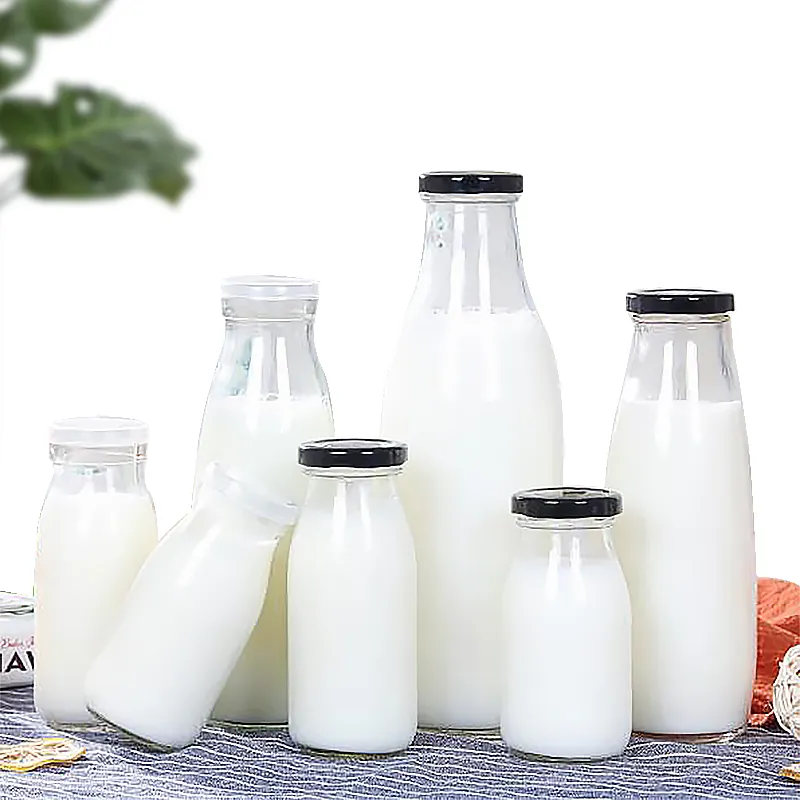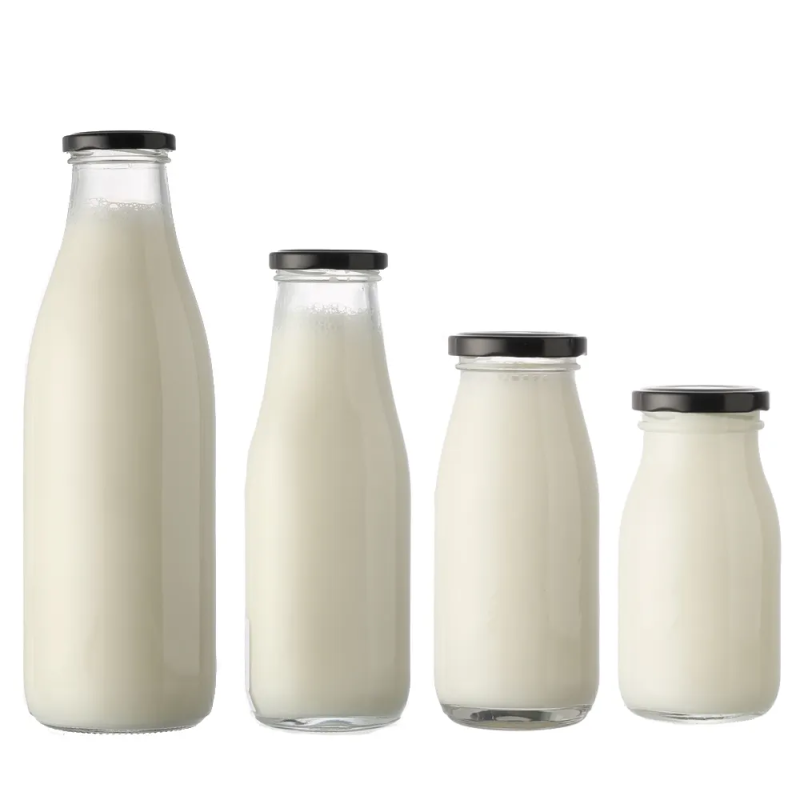|
Table of Contents |
| 1.No Harmful Chemicals in Glass |
|
2.Glass Does Not Absorb Chemicals or Odors |
|
3.No Risk of Harmful Additives |
|
4.No Risk of Melting or Deforming |
|
5.Conclusion |
Indeed, glass milk bottles are generally safer than plastic ones, especially when factors related to health and pollution are taken into consideration.
The following aspects can be used to verify this result.

No Harmful Chemicals in Glass
A primary safety concern regarding plastic bottles lies in the possibility of harmful chemicals leaching into the milk they contain. A significant number of plastic bottles, particularly those fabricated from lower-quality plastic materials, possess chemicals such as Bisphenol A (BPA), phthalates, and styrene. These substances have the potential to seep into food and beverages, and this risk becomes especially pronounced when the bottles are exposed to heat or light. Notably, these chemicals have been associated with a host of health issues, ranging from hormonal disruptions and reproductive problems to certain types of cancer.
Conversely, glass demonstrates chemical inertness. In other words, it does not engage in chemical reactions with food or beverages. As a result, it will not release any harmful substances into the milk, thereby presenting itself as a safer alternative for liquid storage. Moreover, this characteristic not only renders glass a safer choice in terms of safeguarding human health but also makes it more environmentally friendly. This is because, upon disposal, glass does not emit chemicals that could eventually find their way into the soil or water, thus minimizing potential environmental pollution.
Glass Does Not Absorb Chemicals or Odors
Plastic has the property of absorbing odors as well as chemicals from the food or liquid it holds. Over an extended period, plastic bottles are prone to developing an undesirable smell or flavor, especially when they are reused or come into contact with specific substances. Such a phenomenon can have an impact on the taste and quality of the milk contained within.
On the contrary, glass, due to its non-porous nature, does not absorb odors, flavors, or chemicals. Consequently, the milk stored in glass bottles can maintain its freshness and possess a cleaner taste. This aspect holds particular significance for products like milk, given that flavor and freshness are of utmost importance in such cases.
No Risk of Harmful Additives
Certain plastic bottles incorporate additives including flame retardants, stabilizers, and colorants, which are employed to enhance the durability and visual attractiveness of the plastic. However, these additives can pose risks as they may potentially leach into the food or beverages that are stored within plastic containers and thus prove to be harmful.
In contrast, glass is manufactured from natural materials, namely sand, soda ash, and limestone. As a result, it does not have the necessity for such additives. This characteristic renders glass a purer and safer material option for the storage of milk and other food products.
No Risk of Melting or Deforming
Plastic bottles are susceptible to warping or melting when subjected to high temperatures, for instance, when they are left inside a hot car or placed in proximity to heat sources. Such exposure can trigger the release of harmful substances from the plastic into the milk. In particularly severe circumstances, plastic bottles may even crack or break under specific conditions.
Conversely, glass bottles exhibit significantly higher heat resistance compared to their plastic counterparts. Although glass may break if accidentally dropped, it will neither deform nor release harmful substances when encountering heat. This feature positions glass as a safer option for milk storage, especially in scenarios where temperature variations are frequently encountered.

Conclusion
To sum up, there are several crucial reasons why glass milk bottles are deemed safer than plastic ones. Firstly, glass is chemically inert, which implies that it will not allow harmful substances such as Bisphenol A (BPA) or phthalates to seep into the milk. Moreover, it effectively mitigates the risks associated with microplastics contamination and chemical absorption, issues that have been a cause for concern with plastic containers.
In addition, glass bottles possess greater durability, higher heat resistance, and are reusable. These qualities combine to present a purer and safer alternative for storing milk as well as other beverages.
For those who are apprehensive about their health and the safety of the food and drinks they consume, making the switch to glass bottles proves to be a prudent decision. Not only do glass bottles offer enhanced safety for individuals, but they are also more environmentally friendly. Hence, opting for glass bottles constitutes a win-win solution that benefits both personal well-being and the ecological health of our planet.
If you are interested in this product,please contact me at any time.We can provide free samples and more information as four your request.





